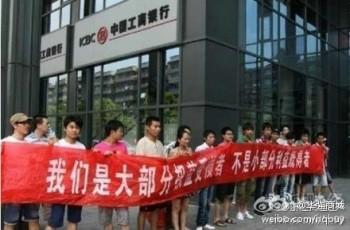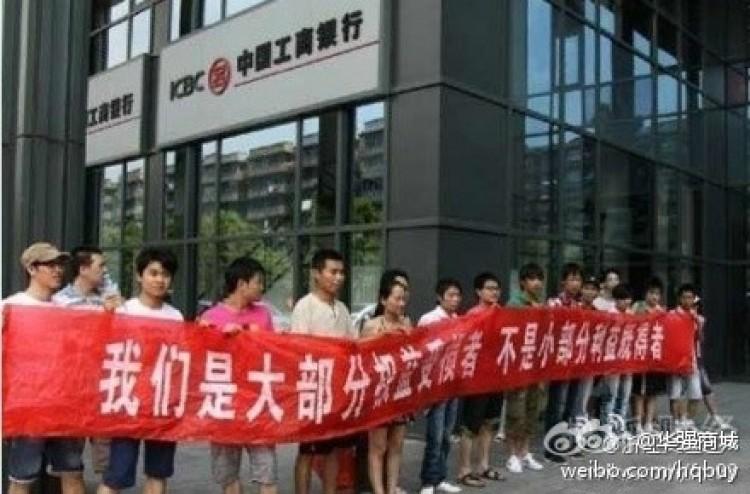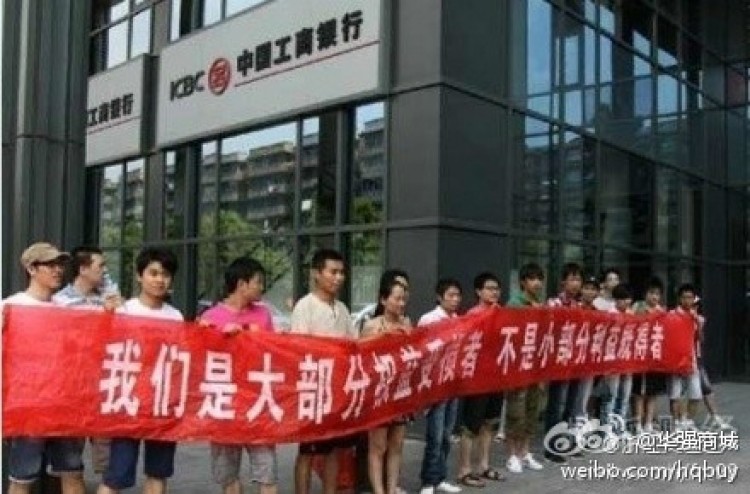Angry Merchants Disrupt Leading Online Retailer in China
After coming to dominate business-to-consumer online retail in China, the firm Taobao is now dramatically hiking the fees charged to the businesses that use its platform.

Since Oct. 12, hundreds have protested outside the headquarters of Taobao in Hangzhou City in Zhejiang Province in eastern China. Weibo.com
|Updated:





